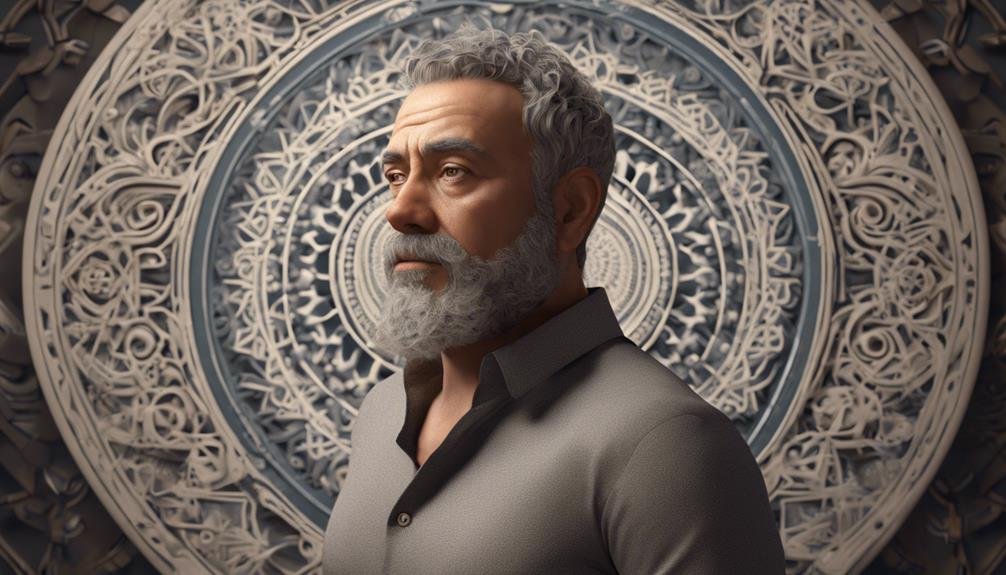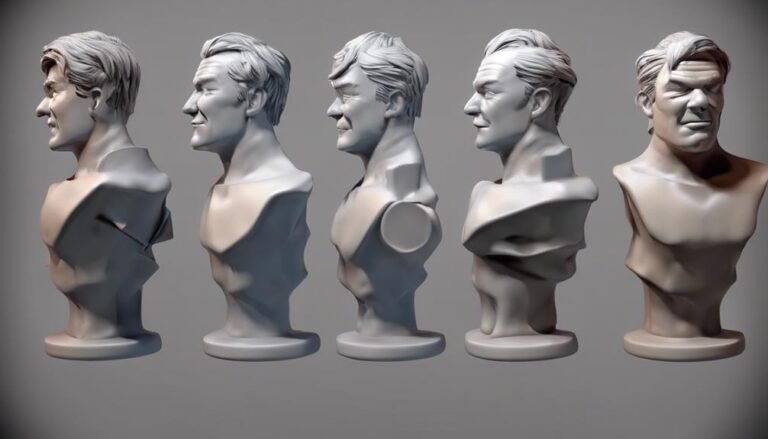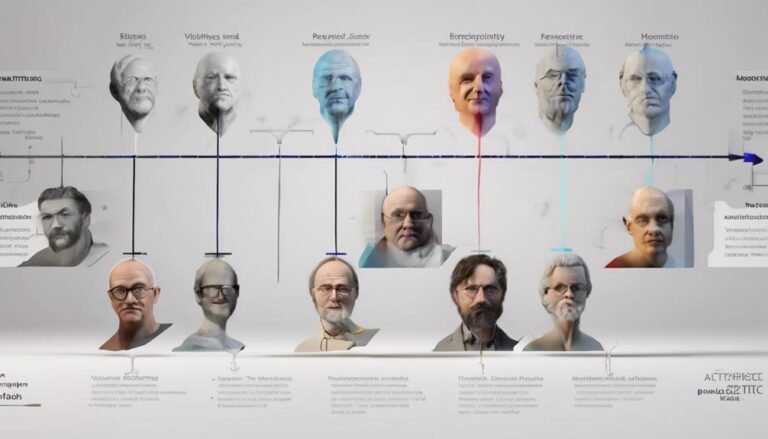Key Figures in Personality Psychology: Carl Jung
Explore the profound impact Carl Jung had on the field of personality psychology with his groundbreaking theories. From unraveling the mysteries of the unconscious mind to uncovering the universal symbols that shape our psyche, Jung's work continues to intrigue scholars and practitioners alike. Discover how his concepts not only shed light on the complexities of human nature but also offer a roadmap for personal growth and self-discovery that transcends time and cultural boundaries. Jung's insights into the depths of the human psyche are as relevant today as they were during his pioneering era, making him a timeless figure in the domain of psychology.
Key Takeaways
- Jung's childhood experiences influenced his work.
- Analytical Psychology explored the unconscious mind.
- The collective unconscious and archetypes were central to his theories.
- Personality typology classified individuals based on cognitive functions.
- Jung's enduring legacy influences counseling and therapeutic approaches.
Early Life and Education
Carl Jung's early life and education greatly influenced his later work in personality psychology. Childhood experiences play a pivotal role in shaping an individual's future, and for Jung, this was no exception. Growing up in a small village in Switzerland exposed him to the complexities of human behavior from a young age. His interactions with family members, particularly his parents, and the local community, served as the foundation for his deep understanding of human nature.
In terms of his educational background, Jung excelled academically from an early age. His mentors, including renowned psychiatrists and philosophers, recognized his potential and guided him towards a career in psychology.
Studying medicine and psychiatry further honed his analytical skills and provided him with a solid scientific foundation for his future work. The diverse influences he encountered during his education, from Freud to Bleuler, contributed to the development of his unique perspective on personality and the unconscious mind.
Development of Analytical Psychology
Pioneering the field of psychology, Analytical Psychology emerged as a distinct approach that emphasized the exploration of the unconscious mind and the integration of the conscious and unconscious aspects of the psyche. Carl Jung, the founder of this school of thought, placed significant importance on dream analysis and psychological types in the development of Analytical Psychology.
Dream analysis played a central role in Jung's work, as he believed dreams provided insights into the unconscious mind and its contents. By interpreting dreams, individuals could uncover hidden desires, fears, and unresolved conflicts, leading to a deeper understanding of the self.
Furthermore, Jung introduced the concept of psychological types, which classified individuals based on their preferred ways of interacting with the world. This typology, encompassing introversion/extroversion, thinking/feeling, sensing/intuition, provided a framework for understanding personality differences and dynamics within individuals and interpersonal relationships.
Jung's exploration of dream analysis and psychological types laid the foundation for Analytical Psychology's holistic approach to understanding the human psyche.
The Collective Unconscious
An essential concept in Analytical Psychology is the collective unconscious, a theoretical framework positing the existence of shared, inherited elements of the unconscious mind that underlie universal themes and symbols across cultures and individuals. Jung's theories on the collective unconscious differ notably from Freud's emphasis on the personal unconscious. While Freud focused on individual experiences and repressed memories shaping personality, Jung proposed that the collective unconscious contains archetypes and primordial images that are common to all humanity.
In modern applications of Jung's theories, the concept of the collective unconscious is often utilized in dream analysis. Dream interpretation based on the collective unconscious suggests that certain symbols and themes in dreams have universal meanings that can provide insights into an individual's psyche.
Archetypes and Personality Typology
Exploring Jung's concept of archetypes provides a framework for understanding personality typology within the context of Analytical Psychology. Archetypes, according to Jungian psychology, are universal symbols and themes that are present in the collective unconscious. These archetypes, such as the Hero, the Shadow, the Wise Old Man, and the Anima/Animus, represent fundamental human experiences and motivations that influence personality development.
Jung believed that individuals are shaped by these archetypes, which manifest in dreams, myths, and fantasies. By recognizing and integrating these archetypal symbols into one's consciousness, individuals can achieve a more balanced and holistic sense of self. This integration process is central to Jung's theory of individuation, where individuals aim towards self-realization and wholeness.
In terms of personality typology, Jung proposed the existence of psychological types based on his theory of cognitive functions. This theory categorizes individuals into different personality types, such as Introverted/Extroverted, Sensing/Intuition, Thinking/Feeling, and Judging/Perceiving.
These typologies provide insight into how individuals perceive the world, make decisions, and interact with others, contributing to a deeper understanding of human behavior within the domain of psychological theories.
Legacy and Influence
Furthermore, Jung's enduring legacy and profound influence in the field of personality psychology can be observed through the widespread application of his concepts in various therapeutic approaches and academic discussions.
His psychological theories, including the concepts of archetypes, the collective unconscious, and personality typology, continue to have contemporary relevance in modern psychology. Jungian therapy, based on his theories, has found modern applications in counseling, psychotherapy, and personal development.
Contemporary psychologists often refer to Jung's ideas when exploring the depths of the human psyche, understanding individual differences, and addressing complex psychological issues.
The notion of archetypes, for instance, remains central in contemporary discussions on symbolism, mythology, and cultural representations in psychology. Additionally, Jung's emphasis on the integration of the conscious and unconscious aspects of the self has influenced various therapeutic approaches that aim for holistic healing and self-realization.
Conclusion
To wrap up, Carl Jung's groundbreaking work in personality psychology has left an indelible mark on the field. His exploration of the unconscious mind, archetypes, and individuation has paved the way for new understandings of human behavior and personality differences.
Jung's legacy, like a towering oak tree, looms large in the landscape of psychology, casting a shadow that continues to influence therapeutic approaches and the study of symbolism in the modern era.







